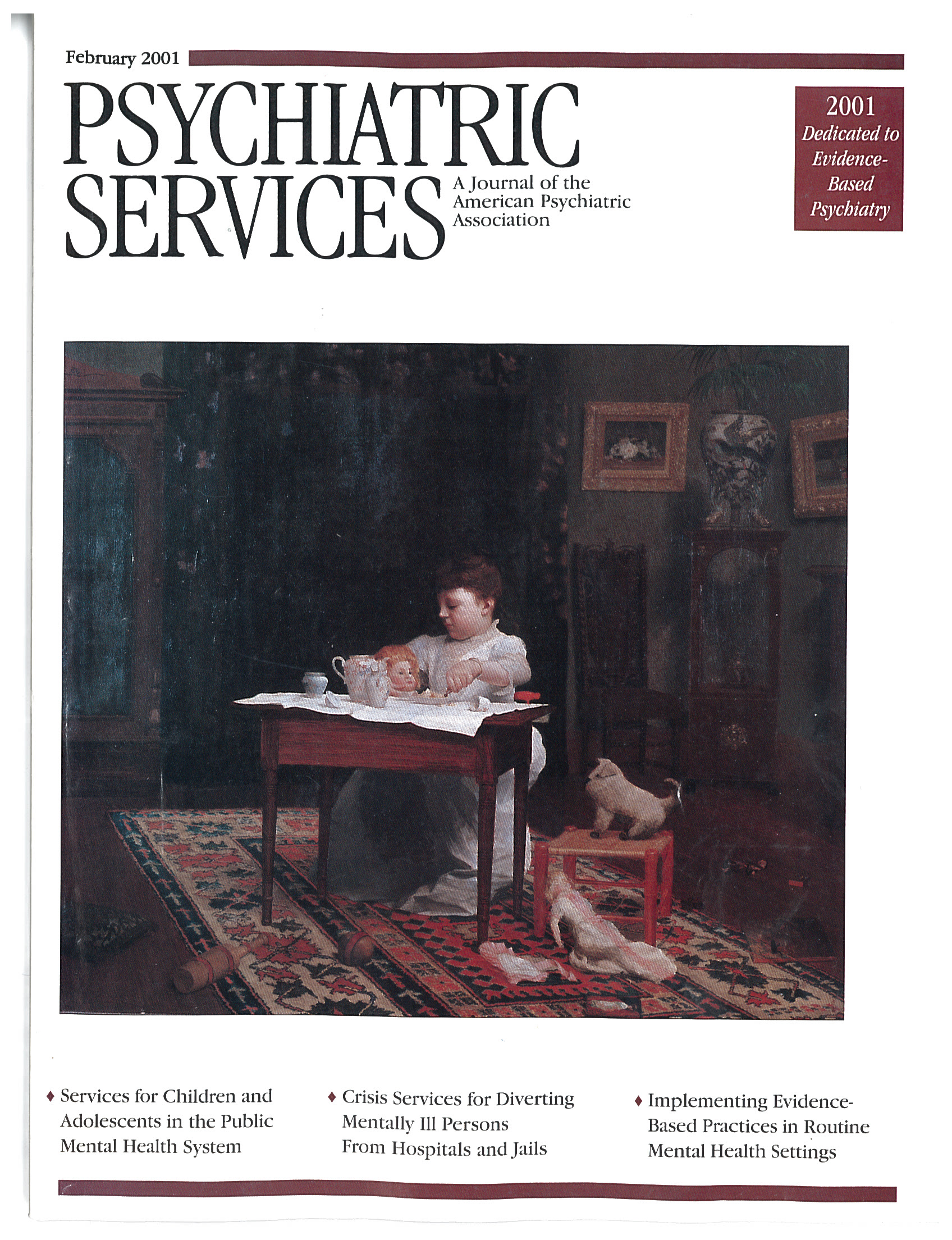Implementing Evidence-Based Practices
In January the journal began a series of papers on the use of evidence-based practices in the treatment of persons with severe mental illness. In this month's issue, Robert E. Drake, M.D., and his colleagues continue the series with a description of the concept of evidence-based practices and a rationale for their use in routine mental health service settings. The authors address concerns that may arise for administrators and clinicians in deciding to implement these practices, such as the role of ethical values in shaping evidence-based practices and the nature and limitations of the research evidence (page 179).
Children's Services
Several papers this month examine services provided to children and adolescents. Improving mental health care for this population is a top priority of the U.S. Surgeon General, whose comprehensive report on the needs for care among children and adolescents was released last month (www.surgeongeneral.gov/cmh/childreport.htm). In this issue of the journal, Barbara Dickey, Ph.D., and her colleagues examine patterns and costs of care for children and adolescents before and after Massachusetts implemented a Medicaid managed care carve-out for children's behavioral health services. Their study showed that after the introduction of Medicaid managed care, per-child expenditures were lower, especially for disabled children (page 183). The study by Ping Wu, Ph.D., and his coworkers looks at service use among depressed children and adolescents in a community sample in New York (page 189). Christine Walrath, Ph.D., M.H.S., and associates examine the question of whether children referred for treatment from different systems—school, social service, juvenile justice, and the community mental health systems—had different characteristics on intake to a public-sector treatment program in Baltimore (page 196). Consumer satisfaction with services among children at a child and adolescent state psychiatric hospital in Pennsylvania and their parents is the topic explored by Stuart Kaplan, M.D., and his coauthors (page 202). Finally, the Alcohol & Drug Abuse column offers a perspective on the future direction of substance abuse treatment services for this population (page 147), and Datapoints presents national data on costs for psychotropic medications prescribed to children and adolescents (page 152).
Crisis Response Services
Two articles in this issue evaluate special services for persons in the community who are experiencing a psychiatric crisis. Henry J. Steadman, Ph.D., and his colleagues report on crisis services in three states that seek to divert mentally ill individuals from the criminal justice system. They describe the importance of having a centralized, 24-hour crisis site where law enforcement personnel can drop off persons whom they believe are mentally ill. Dr. Steadman and his colleagues found that a no-refusal policy and streamlined intake for law enforcement personnel are critical factors in ensuring diversion (page 219). In another study, Shenyang Guo, Ph.D., and coworkers evaluate the impact of a community-based mobile crisis intervention program on hospitalization rates of persons in crisis in the community (page 223).
Clubhouse Benchmarks
Benchmarking is a process by which an organization or system sets target levels for performance. Specific benchmarks establish best practices for an organization. The International Center for Clubhouse Development (ICCD) has established benchmarks for the performance of psychiatric rehabilitation clubhouses based on the Fountain House model. The benchmarks are used in reviews of clubhouses seeking ICCD certification. In a national survey, Cathaleene Macias, Ph.D., and her colleagues explored outcomes of clubhouses to determine whether those that met the ICCD benchmarks delivered better outcomes better than those that did not. The findings indicated that the ICCD benchmarks are a valid indicator of program quality (page 207).
Briefly Noted…
• The Best Practices column looks at the history of the best practices movement in medicine as a whole and in psychiatry (page 157).
• In the Economic Grand Rounds column, Arthur Lazarus, M.D., M.B.A., discusses the promise of disease management programs that deliver a combination of effective services to targeted groups (page 169).
• Marcia Kraft Goin, M.D., Ph.D., the editor of the new column Practical Psychotherapy, outlines elements in a treatment framework central to the care of patients with borderline personality disorder (page 167).
• The books section begins with a review of two books on eating disorders, one historical-conceptual and the other focusing on treatment and prevention (page 243).

